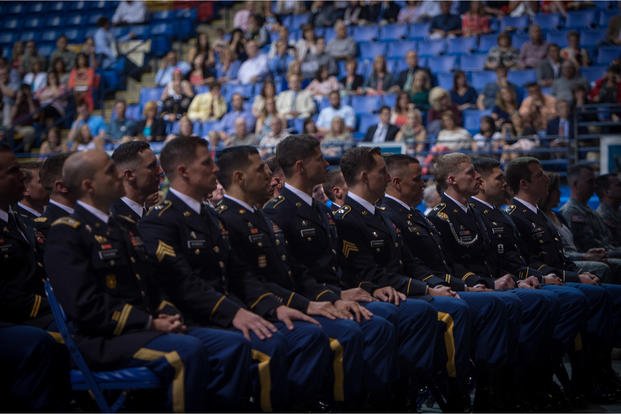U.S. Army Special Forces soldiers are experts in unconventional warfare, and within the Special Forces community, individual soldiers have particular skill sets depending on their military occupational specialties, or MOS.
To qualify in these MOS, soldiers must attend the Special Forces Qualification Course at Fort Bragg, N.C., which lasts up to two years depending on the MOS. After completing the SFQC, new Green Berets are assigned to an Operational Detachment-A, or ODA, at one of the five active-duty or two National Guard Special Forces Groups. A typical 12-man ODA consists of these Special Forces MOS:
Detachment Commander (18A): The detachment commander is a captain and has full command authority and responsibility for his detachment. These officers are schooled in the art of unconventional warfare and in the primary missions ODAs may be required to accomplish. They also receive instruction on the capabilities of all the enlisted Special Forces MOS to enable them to employ their detachments' assets in peacetime, conflict or war properly. The detachment commander may advise an indigenous battalion-size combat force.
Assistant detachment commander (180A): The assistant detachment commander is the ODA's second in command. He is a warrant officer who has been selected from within the Special Forces community's enlisted ranks.
Operations (team) sergeant (18Z): The Special Forces operations sergeant, better known as the team sergeant, is usually a master sergeant and is responsible for all operational aspects of the ODA. The team sergeant is the ODA's senior NCO and typically is the most experienced Green Beret on the detachment.
Assistant operations and intelligence sergeant (18F): The assistant operations and intelligence sergeant is usually a sergeant first class and is trained in advanced special operations techniques, including intelligence collection and processing and target analysis.
Weapons sergeant (18B) x 2: The weapons sergeant is an expert in the employment of U.S. and foreign weapons systems, including small arms, mortars, air defense systems and antitank weapons found throughout the world. The weapons sergeant also employs conventional and unconventional tactics and techniques as a tactical mission leader, and they assist the detachment operations sergeant in the preparation of training and operational plans.
Engineer sergeant (18C): The engineer sergeant is highly skilled in the planning and constructing of buildings and bridges -- as well as in their demolition. His knowledge of construction techniques includes expertise in creating buildings and field fortifications, and the engineer sergeant also is skilled in all areas of demolitions, including land-mine warfare and constructing and using improvised munitions. Engineer sergeants plan, supervise and perform all aspects of combat engineering and light construction.
Medical sergeant (18D): The medical sergeant is well-versed in many different areas of human and animal physiology. They are a specialist in trauma management, infectious diseases, cardiac life support and surgical procedures. They also can perform basic veterinarian medicine. Medical sergeants provide emergency, routine and long-term medical care for their teams and associated allied members and host nation personnel. They train, advise and direct the detachment's routine, emergency and preventive medical care. They also can establish field medical facilities to support detachment operations.
Communications sergeant (18E): The communications sergeant is the ODA's link to the rest of the world. He is an expert in sending and receiving critical communications to the ODA's command and control elements. Communications sergeants are familiar with cryptographic systems, burst outstation systems, antenna theory, radio wave propagation and common radios found throughout the Army. Communications sergeants install, operate and maintain FM, AM, HF, VHR, UHF and SHF communications in voice and burst radio networks. They advise the detachment commander on all communications matters.
Want to Know More About the Military?
Be sure to get the latest news about the U.S. military, as well as critical info about how to join and all the benefits of service. Subscribe to Military.com and receive customized updates delivered straight to your inbox.











